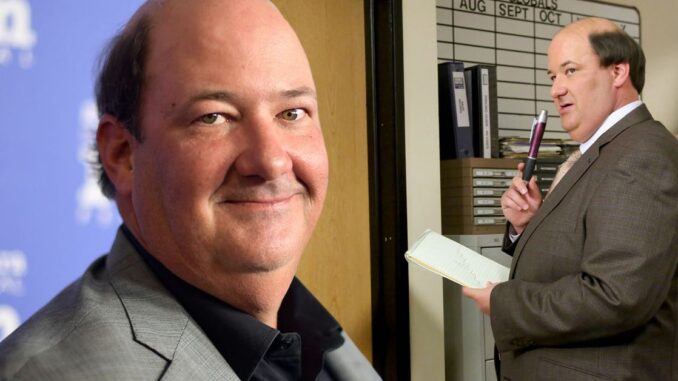
The hum of the fluorescent lights in Dunder Mifflin, the jingle of the telephone, the ever-present, simmering awkwardness – The Office was more than just a sitcom; it was a cultural touchstone, a surrogate family for millions. And at the chaotic, often cringe-worthy, but undeniably beating heart of that family was Michael Scott, brought to life with a breathtaking blend of buffoonery and pathos by Steve Carell. When Carell announced his departure, it wasn’t just an actor leaving a show; it was a seismic event in the television landscape, a central star extinguishing itself from a beloved constellation. Years have passed, the show has concluded, and the collective memory has solidified its place, yet a recent whisper from one of its quiet cornerstones, Brian Baumgartner, regarding Carell's exit, resonates with a fresh, poignant clarity, illuminating the profound void left behind and the quiet resilience required to fill it.
For years, the immediate aftermath of Carell’s departure was widely discussed by critics and fans, focusing on ratings dips or new character introductions. But hearing Baumgartner, the inimitable Kevin Malone, finally speak at length about it, carries a different weight. It’s not an executive’s retrospective or a critic's analysis; it’s the quiet observation of a fellow craftsman, a long-time colleague who stood shoulder-to-shoulder with Carell through countless takes, endless improv sessions, and shared triumphs. His "finally talks" implies a deep well of reflection, an understanding that has ripened with time, offering not just anecdotes, but insights into the emotional and professional landscape of a show unmoored from its gravitational center.
Imagine a meticulously built house, its foundation strong, its structure solid, but one large, load-bearing wall is removed. The house doesn't immediately collapse; its remaining walls and beams strain, they lean, they redistribute the weight, trying to maintain the integrity of the whole. This is the silent visual Baumgartner’s reflections conjure. Carell’s Michael Scott was that load-bearing wall, the primary source of conflict, humor, and often, unexpected warmth. His presence dictated the rhythms of the scenes, the reactions of the other characters, the very comedic atmosphere of the show. When he left, there was an audible gasp from the audience, but on set, one can envision a quiet, palpable shift – a new kind of silence in the space where Michael’s boisterous pronouncements once echoed, a subtle recalibration of every actor’s internal compass.
Baumgartner's words likely wouldn't focus on the logistical challenges, but rather the intangible ones. He would speak of the energy, or lack thereof, the absence of Carell’s singular genius for improvisation, which often served as a launchpad for his co-stars. It wasn't just losing a character; it was losing a creative partner in the daily dance of making comedy. There would be an unspoken understanding among the cast members: How do we do this now? How do we maintain the magic when the wizard has left the castle? His reflections serve as a testament to the internal conversations, the slight adjustments in performance, the subtle ways each actor stepped up, not to replace Michael, but to collectively absorb the shock and keep the beloved narrative moving forward.
What Baumgartner’s candidness illustrates most powerfully is the dual nature of any long-running creative endeavor: it is both a product and a living, breathing entity. When a key element departs, it's not merely a production change; it's an amputation. Yet, the body, if strong enough, finds a way to adapt. The Office did, by leaning harder on its magnificent ensemble, exploring the depths of Dwight, Pam, Jim, and even characters like Andy and Erin. It was a testament to the fact that while Michael Scott was the sun, the other characters were planets, each with their own unique gravitational pull, capable of sustaining their own orbits.
Ultimately, Brian Baumgartner's willingness to "finally talk" about Steve Carell's exit isn't just fan service; it's a profound act of witness. It’s a gentle opening of the curtain, years after the final bow, to reveal the human cost and the remarkable resilience behind the seamless facade of beloved entertainment. It reminds us that behind every character, every punchline, every emotional beat, are real people navigating shifts, losses, and the shared, arduous task of keeping a cherished story alive, even when its brightest star has moved on. And in that quiet, unassuming reflection, the legacy of Michael Scott, and the enduring strength of the Dunder Mifflin family, shines even brighter.